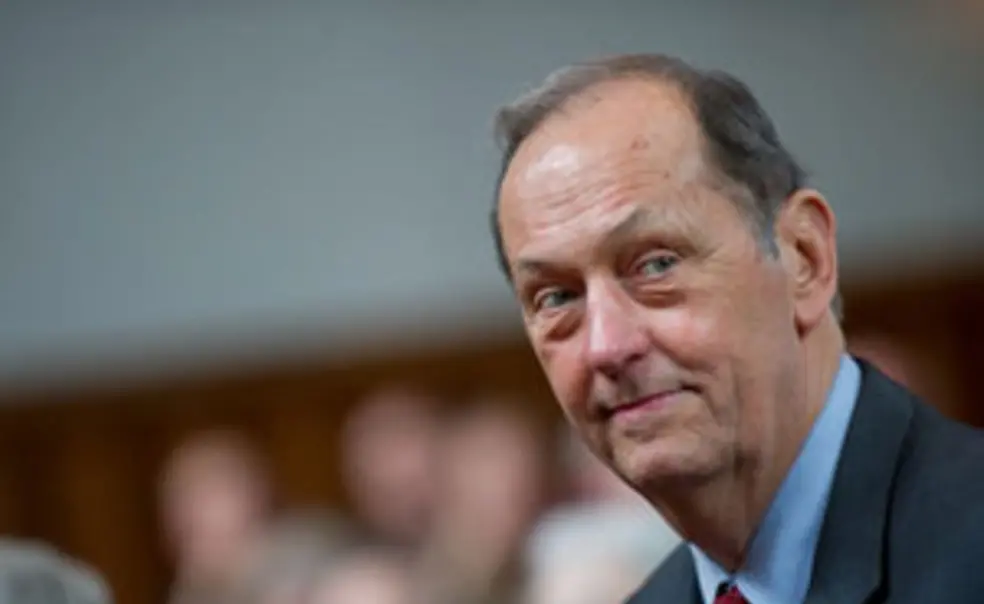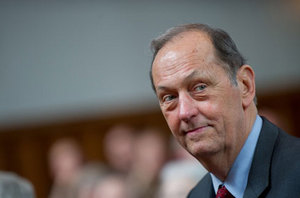Bradley '65: U.S. can 'do better' in politics, policy, and economics
Bill Bradley '65, before his May 9 lecture at McCosh Hall. (Photo: Sameer Khan/Courtesy Woodrow Wilson School)
In his second State of the Union address, Abraham Lincoln said, “We can succeed only by concert. It is not, ‘Can any of us imagine better?’ but ‘Can we all do better?’” This line inspired former U.S. Sen. Bill Bradley ’65 to write his seventh book, We Can All Do Better, which he introduced to an audience of nearly 200 in McCosh Hall May 9 on the first stop of his national book tour.
Bradley, a onetime presidential hopeful who now serves as a managing director at the investment firm Allen & Company, wrote the book out of frustration with America’s current political gridlock in the face of overseas war and economic difficulty, exemplified by the debt limit debacle in Washington last summer.
“When you look and see the fragility and inequality of our economy, if you see the direction of our foreign policy, if you see the paralysis in our national dialogue, it’s relevant — can we all do better?” he said. Bradley also emphasized personal responsibility, asking, “Can each of us do better? Can we find that part of ourselves that honors the selfless and project it into the world we live?”
Bradley, a history major at Princeton, relied heavily on U.S. history to create practical, cautiously optimistic recommendations in three areas — the economy, U.S. foreign policy, and domestic political institutions.
To solve middle-class income decline, he urged reducing the deficit and shifting a greater tax burden onto consumers as opposed to on employers. He also championed creating jobs through large-scale infrastructural projects that could be partially funded by Chinese purchases of reconstruction bonds, a move that also would improve the Sino-American relationship.
He expressed some admiration for China’s long-term policy planning capability and in his book urges the government to “concentrate on our people, our economy, our growth, on raising our standard of living in this country” instead of prioritizing issues in the Middle East or elsewhere. His other foreign policy priority would be to encourage immigration to the United States, especially of talented, educated workers to replenish the diminishing American workforce.
On the political front, Bradley pointed to the “fundamental structural problems” of gerrymandering and unlimited campaign contributions — and how these things create a polarized Washington. He exhorted individual Americans to be more fully engaged in creating change, citing the Tea Party as an example of a well-organized citizens’ movement and Occupy Wall Street as a well-meaning but disorganized disappointment. “Democracy is not a vicarious experience,” he said. “It’s something you taste.”
Bradley remained positive about America’s prospects, which he hopes will be the ultimate takeaway from his book. “I want to remind people of my own personal view that there is goodness in the American people,” he said.

Sarah Xiyi Chen ’13 is a Woodrow Wilson School major from Arcadia, Calif.













No responses yet